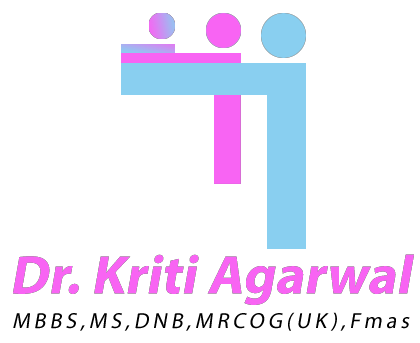What is Ovulation Induction?
Ovulation induction is a treatment of fertility medications to stimulate ovaries to produce one or more eggs.It can be oral [Letrozole [letoval)] or injections of FSH/HMG when tablets have not caused an egg to become big and mature enough for fertilization.
Benefits
Ovulation induction allowswomen who do not ovulate normally an opportunity to ovulate and have a chance of conceiving. Its success depends on timing intercourse to take place when ovulation occurs.Monitoring the response to treatment is therefore a vital to maximise the chance of a successful pregnancy and to minimise the risks of the treatment.It also enables clinicians to modify the drug dosage as and when required. Induction of ovulation is indicated in women who do not ovulate (produce an egg) normally.
Conditions associated with failure to ovulate include:
(a) Hormonal Imbalance
If there is an imbalance in the release of follicle stimulating hormone (FSH) and luteinising hormone (LH) from the pituitary gland in the brain, a woman’s ovaries will fail to produce an egg (ovulate) each month. Women who do not ovulate regularly tend to have irregular periods and may fail to menstruate. A known cause of hormonal imbalance is severe weight loss.
(b) Polycystic Ovary Syndrome (PCOS)
This is a condition in which the ovaries of affected women contain small cysts of about 2-8mm diameter, which are easily detectable by ultrasound scan. It is a fairly common cause of irregular periods and affected women may not become pregnant, because they are not ovulating. It is believed that this condition arises because of inability of the ovaries to produce hormones in the correct proportion.Fertility drug treatment with tablets or injectionsFertility drug treatment with tablets or injections can usually induce ovulation in these women.
(c) Weight and Body Mass Index (BMI)
A high weight height ratio has significant adverse impact on reproduction outcome. It influences the chance ofconception, response to fertility treatment and makes monitoring of treatment suboptimal.
Which drugs are used for induction of ovulation?
1. Letrozole
is the most commonly used drug for induction of ovulation and it is administered via tablet form for 5 days. Over 80% of women given letrozole will ovulate but only about 1 in 3 actually become pregnant.
Side effects of treatment with Clomifene Citrate are rare but some women complain of tummy and bowel upset.There is always a risk of multiple pregnancy when fertility tablets are prescribed. Abnormal uterine bleeding and enlargement of the ovaries can occur.
2. Gonadotrophins
Gonadotrophins are administered by injection and are useful in women who fail to respond to letrozole treatment, especially women with Polycystic Ovary Syndrome (PCOS).
Gornadotrophins provide follicle stimulating hormone (FSH) and luteinising hormone (LH) in various amounts. Treatment with gonadotrophins is usually started after a baseline scan of your ovaries, within the first 3 days of your cycle. Women who do not have periods, may be given hormones to induce menstruation. The length of treatment and the dose of gonadotrophin given will vary from patient to patient, depending on how your ovaries respond.
What happens in the Ovulation induction procedure?
- Medications begin at the start of the menstrual cycle to encourage eggs to mature. Usually these are gonadotrophin injections stimulating the ovaries to produce egg sacs/follicles and cause ovulation or egg to mature.
- 5-7days after treatment has commenced, you will be asked to have regular ultrasound scans to check the growth of follicles and when the scan shows adequate number of follicles that have reached their target size,a final injection,’THE TRIGGER’ will be administered to cause release of eggs from the egg sac’rupture’.
- You will be advised by the unit staff of likely timing of ovulation and advised to have regular intercourse over the next couple of days.
- You will be asked to carry out a pregnancy test two weeks following the trigger injection unless your period has already started.
- If the test is positive, we will arrange a scan for you in a couple of weeks to ensure all is well.
- If the test is negative, then our inhouse doctor will contact youto offer support and the way forward if you wish to proceed with another cycle of treatment.
Risks
The risks involved in having Ovulation Induction are:
- Ovarian hyper-stimulation
- Multiple pregnancy
- Failure to conceive.
The Counsellor can be contacted for support at any time, throughout your treatment and afterwards.




